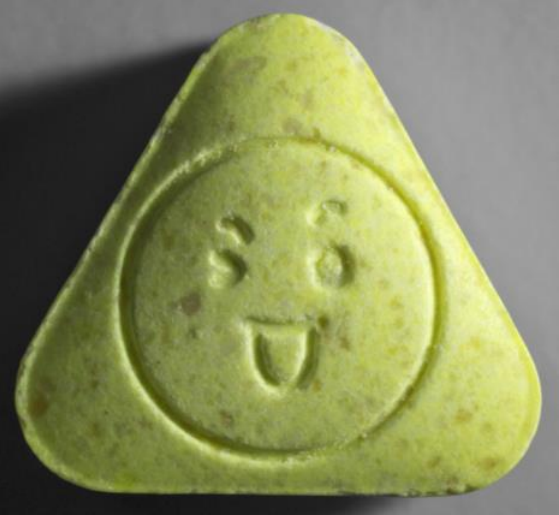The DEA still considers it a Schedule I narcotic, but the FDA recently reclassified MDMA as a 'breakthrough treatment' for PTSD. Recent testing has changed many medical experts' opinions on the drug, including the former top-ranking psychiatrist in the US Army who believes it could be a big help to soldiers returning from war.
Initial rounds of testing have resulted in the elimination of PTSD symptoms in 66% of patients. That's more than double the effectiveness of currently approved treatments, such as Zoloft and Paxil.

MAPS & the Therapeutic Promise of Psychedelics
The MDMA clinical test was arranged by an organization dedicated to this field of study known as MAPS, the Multidisciplinary Association for Psychedelic Studies. The director of MAPS is Rick Doblin. The organization studies the use of psychedelics in psycotherapy treatments, including MDMA, LSD, ayahuasca, ibogaine, and cannabis.
“If you were to design the perfect drug to treat PTSD, MDMA would be it," he said.
The "breakthrough" FDA designation comes at the end of a round of Phase 3 trials for MDMA as a PTSD treatment. MAPS has been working for years to get to this point, moving beyond anecdotal success stories and mapping the neurochemical mechanisms that allow for the high level of success in treatment. A quick read through the MAPS PTSD Phase 3 MDMA testing design makes that clear.
"MDMA produces anxiolytic and prosocial effects (Bedi et al., 2010), which counteract avoidance and hyperarousal in therapy. PTSD increases activity in the amygdala, causing heightened encoding of fearful memories and decreasing blood flow to the prefrontal cortex. In contrast, MDMA acutely decreases activity in the amygdala and hippocampus, and increases blood flow to the prefrontal cortex."
The treatment regimen studied during the tests combines MDMA dosage with extended psychotherapy sessions. While talk therapy can be very helpful to those suffering from PTSD, overcoming the initial resistance to talking or even thinking about the trauma often makes it impracticable.
The neurochemical action of MDMA affects those resistance mechanisms, and makes it possible for patients to confront and discuss their trauma and their feelings about it. In combination with effective talk therapy techniques, MDMA treatment provides unmatched success in eliminating PTSD.
Cryptocurrency Community Support for the Studies
MAPS was an early organization to accept cryptocurrency donations, beginning in 2013. The charitable organization currently accepts donations of bitcoin, litecoin, and Ethereum. Naturally, they also accept donations using traditional fiat payment channels.
For the latest round of MDMA Phase 3 clinical trials, the organization received $50,000 in cryptocurrency donations, which is really impressive. The amount of fiat contributions dwarfed that, with a total of $12.5 million out of a needed $25 million for the complete testing round raised already.
Another recent cryptocurrency fundraiser for MAPS was the Decentranet Schmooze Cruise in mid-August that featured fellow Steemian @sterlinluxan as a guest speaker. (I missed it, but I would definitely be interested in another opportunity.)
Army Psychiatrists Also Support MDMA Treatment
MAPS is well aware of the skepticism many people have toward their work in general, so the choice to study its benefits to returning soldiers was a conscious one. Many people have preconceived ideas and agendas regarding pyschedelics. When the decision to even allow testing is so political, a more sympathetic patient can help people overlook their preconceived notions about certain medications.
Brig. Gen. Loree Sutton was the highest-ranking psychiatrist in the U.S. Army before retiring in 2010. Speaking to the Washington Post, Sutton said, “We’re in this odd situation where one of the most promising therapies also happens to be a Schedule 1 substance banned by the [Drug Enforcement Administration].”
With any luck, the "breakthrough therapy" designation will pave the way toward legitimized use of MDMA to resolve psychospiritual inner conflicts. But more than luck, the project needs funding. MAPS does not receive any government funding, so without private funding this important research would simply not happen.
I would argue that the fact it is such a strictly illegal drug allows the black market to sell unregulated, more volitile, and extremely dangerous versions of MDMA that isn't pure.
Anyways, followed, upvoted, resteemed, and @OriginalWorks
That is definitely true. Legalization would allow access to quality-controlled medication by prescription.
For those who find what is claimed to be MDMA on the black market, information on purity (aimed at reducing potential harm and fraud by black market suppliers) can be acquired through services such as http://www.ecstasydata.org/
Thanks for the resources
@OriginalWorks Mention Bot activated by @jpederson96. The @OriginalWorks bot has determined this post by @olyup to be original material and upvoted it!
To call @OriginalWorks, simply reply to any post with @originalworks or !originalworks in your message!
For more information, Click Here!
Very interesting article when I was much younger I experimented with mdma recreationally it is a very powerful drug but now at 40 and my brother suffering from PTSD from his 2 tours in Iraq and one in Afghanistan seeing it used clinically I can definitely see the potential thank you for the article
Congratulations @olyup! You have completed some achievement on Steemit and have been rewarded with new badge(s) :
Click on any badge to view your own Board of Honor on SteemitBoard.
For more information about SteemitBoard, click here
If you no longer want to receive notifications, reply to this comment with the word
STOP